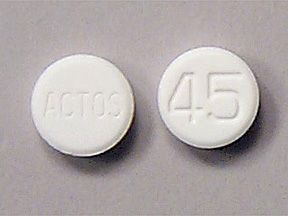Top Class Actions’s website and social media posts use affiliate links. If you make a purchase using such links, we may receive a commission, but it will not result in any additional charges to you. Please review our Affiliate Link Disclosure for more information.

“Had Plaintiffs, individually or through their treating physicians and healthcare providers, including their prescribing physicians, been warned that Actos can cause bladder cancer, Plaintiffs would have chosen safer, alternative medicines which are effective at treating type-2 diabetes without an increased risk of serious, deadly adverse events, including bladder cancer and heart damage,” according to the Actos lawsuit, filed in Louisiana federal court on Feb. 13, 2015.
Additionally, the Actos lawsuit states that the defendants failed to include information about the connection between Actos and congestive heart failure in its label until it was forced to do so by the FDA in 2007. Despite the warning, Takeda and Eli Lilly allegedly promoted and continue to promote Actos as cardioprotective.
Before applying for and receiving FDA approval to market Actos, Takeda and Eli Lilly also knew or should have known that the drug was associated with and/or could cause bladder cancer, the Actos bladder cancer lawsuit further states.
Studies Link Actos to Heart Damage and Bladder Cancer
Actos, a joint venture between Takeda USA and Eli Lilly, received FDA approval in 1999 for the treatment of type-2 diabetes. It is in a class of insulin-sensitizing diabetes agents known as thiazolidinediones.
Numerous studies have examined the effect of Actos on the heart and have clearly shown that Actos is linked to congestive heart failure.
The drug makers conducted a two-year carcinogenicity study on male and female rats and found that drug-induced bladder tumors were observed in male rats receiving doses of Actos that produced blood drug levels equivalent to those resulting from a clinical dose.
Another three-year clinical trial found that patients taking Actos, compared with competing drugs, showed a significant increase in bladder cancer. A three-year liver safety study also demonstrated a higher percentage of bladder cancer cases in patients receiving Actos.
In a September 2010 safety announcement by the FDA, the agency said it was beginning a review of data from an ongoing, 10-year epidemiological study being conducted by Kaiser Permanente to evaluate the association between Actos and bladder cancer. The planned five-year interim analysis demonstrated that the risk of bladder cancer increases with increasing dose and duration of Actos use, the Actos lawsuit states.
In 2011, the American Diabetes Association published a study that analyzed adverse events reports made to the FDA between 2004 and 2009. It found a link between pioglitazone (the generic name for Actos) and bladder cancer and said it required “constant epidemiologic surveillance and urgent definition by more specific studies.”
Actos Warnings
In 2011, France suspended the use of pioglitazone-containing medicines, including Actos, while awaiting the outcome of an ongoing European review. Germany followed suit. French officials ultimately issued a recall.
On June 15, 2011, the FDA issued a safety announcement stating that “use of the diabetes medication Actos (Pioglitazone) for more than one year may be associated with an increased risk of bladder cancer.”
The FDA ordered information about this risk to be added to the Warnings and Precautions section of the label for pioglitazone-containing medicines.
Two days later, Canada announced its own review of the drug.
Actos Lawsuits
Researchers, Takeda and Eli Lilly officials allegedly failed to publish the data finding the statistically significant increases of bladder cancer and instead “intentionally skewed the study findings to obscure the statistical significance of the bladder cancer diagnoses,” prompting these 31 plaintiffs and others to file Actos lawsuits.
Actos plaintiffs allege that the defendants knew of the increased risk of bladder and heart damage before they began marketing Actos and have concealed, and continue to conceal, this information by failing to warn consumers and doctor.
This Actos Lawsuit is Case No: 6:15-cv-00348-RFD-PJH and joins the larger Actos MDL, In Re: Actos (Pioglitazone) Products Liability Litigation, MDL No. 2299, in the U.S. District Court for the Western District of Louisiana.
Do YOU have a legal claim? Fill out the form on this page now for a free, immediate, and confidential case evaluation. The attorneys who work with Top Class Actions will contact you if you qualify to let you know if an individual Actos lawsuit or Actos class action lawsuit is best for you. [In general, Actos bladder cancer lawsuits are filed individually by each plaintiff and are not class actions.] Hurry — statutes of limitations may apply.
ATTORNEY ADVERTISING
Top Class Actions is a Proud Member of the American Bar Association
LEGAL INFORMATION IS NOT LEGAL ADVICE
Top Class Actions Legal Statement
©2008 – 2024 Top Class Actions® LLC
Various Trademarks held by their respective owners
This website is not intended for viewing or usage by European Union citizens.
Get Help – It’s Free
Join a Free Actos Class Action Lawsuit Investigation
If you or someone you know took Actos and were diagnosed with bladder cancer or bladder tumors, legal options are available. See if you qualify by filling out the short form below.
An attorney will contact you if you qualify to discuss the details of your potential case at no charge to you.
Oops! We could not locate your form.












